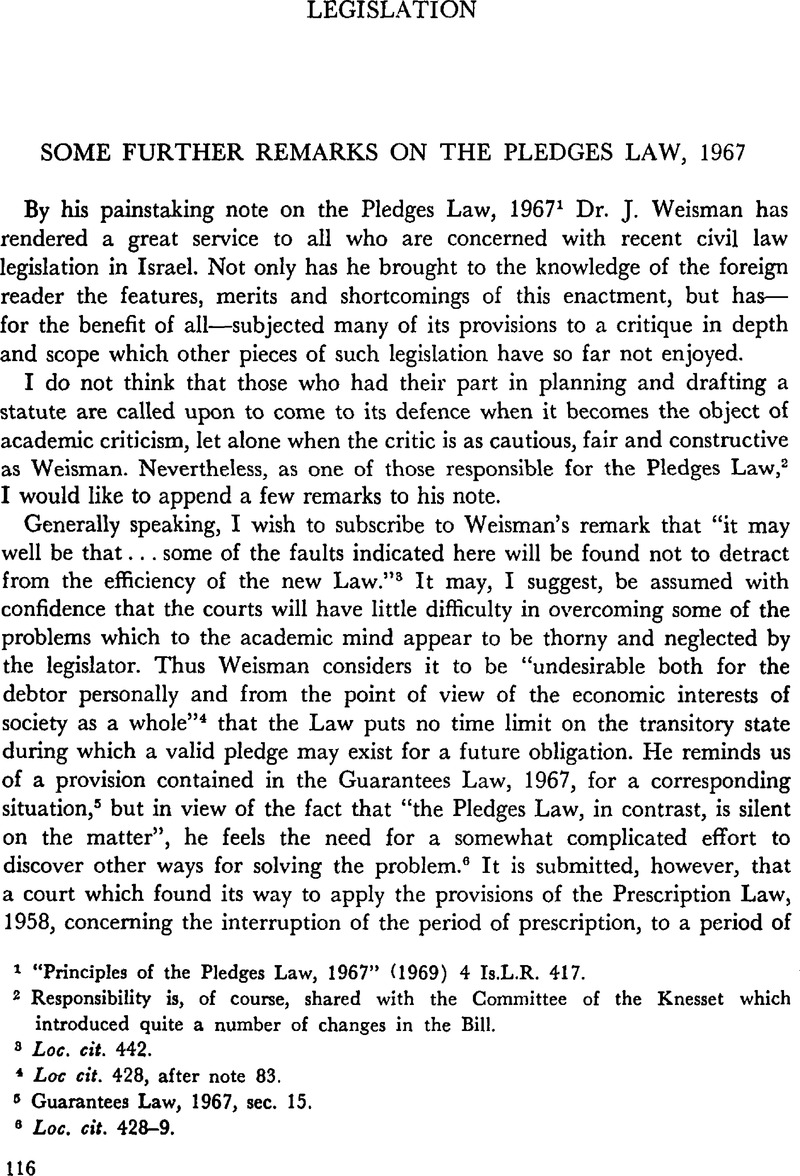Published online by Cambridge University Press: 12 February 2016

1 “Principles of the Pledges Law, 1967” (1969) 4 Is.L.R. 417.
2 Responsibility is, of course, shared with the Committee of the Knesset which introduced quite a number of changes in the Bill.
3 Loc. cit. 442.
4 Loc cit. 428, after note 83.
5 Guarantees Law, 1967, sec. 15.
6 Loc. cit. 428–9.
7 Eiron v. Dukal Ltd. (1968) (I) 22 P.D. 267.
8 In any case, where the collateral belongs to a person other than the debtor, such person may retrieve the property by relying on the combined operation of sec. 12 of the Pledges Law and sec. 15 of the Guarantees Law.
9 See Weisman, op. cit. 424.
10 Ibid. 425.
11 Ibid. 438, note 143.
12 (1969) Sefer HaHukim, No. 573, p. 250 (Hebrew), not yet published in English.
13 Loc. cit. 423, text to note 49, and 436–7.
14 (1969) Sefer HaHukim, No. 575, p. 259 (Hebrew), not yet published in English.
15 Mainly in sec. 161 which provides that, “From the commencement of the Law there shall be no rights in immovables other than by law.”
16 Weisman, op. cit., 424 and note 57.
17 Ibid. 423 and note 53.
18 Ibid. 423.
19 Sec. 1(a) of the Law.
20 Or lease.
21 Subject, of course, to sec. 34 of the Sales Law, 1968, with regard to protection of the bona fide purchaser in open market, and now also to sec. 10 of the Land Law, 1969, with regard to bona fide acquisition of rights in land.
22 Op. cit. 432.
23 Including the distinctive marginal notes to secs. 3 and 4.